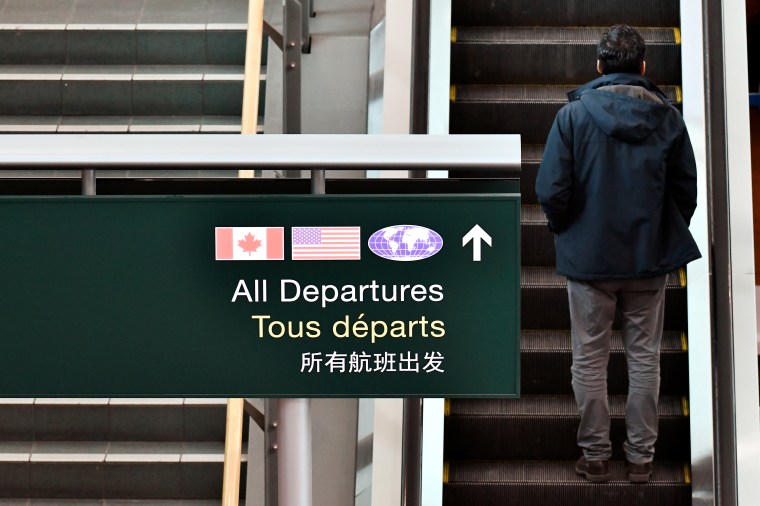On August 21, 2020, Canadian immigration authorities at the Vancouver International Airport denied entry to Kristian Lindhardt, a Danish national working on an independent documentary film and freelancing for the Danish Broadcasting Corporation and other outlets, according to news reports and the journalist, who spoke to CPJ in a phone interview.
Lindhardt said that Canadian Border Services Agency guards questioned him for about four hours, mainly about whether he qualified as an essential worker during the COVID-19 pandemic. According to Canada’s official public safety website, members of the media are considered essential workers.
Lindhardt said he was planning to attend a trial relating to Indigenous land rights and the Trans Mountain Pipeline, the topic of his independent film, and he planned to report for the Danish radio station T1, the radio wing of the public broadcaster.
Lindhardt told CPJ that he presented border guards with his press card from the International Federation of Journalists, a statement of intent from the Danish Broadcasting Corporation, a statement from the Danish journalists’ union, and a letter from the chief of the First Nation he planned to cover. Lindhardt said that he had also completed his Electronic Travel Authorization form that he was required to complete before entering the country.
During his questioning, the border security agents told Lindhardt that they were speaking “to Ottawa” about his case, but did not specify who they were speaking with. He said the officers also “kept saying that they have reporters [in the country] already.”
“I kept saying that they’re not covering [the issues that I would be] and even if they were, international press attention is crucial,” Lindhardt said.
The agents allowed Lindhardt to leave the airport, and ordered him to come back the next morning. He told CPJ that he spent the night at the location where he had planned to quarantine upon his arrival, and then returned to the airport the following morning.
When he returned to Vancouver International Airport, Lindhardt said that immigration authorities questioned him again for two hours about what he had planned to report on, and ultimately said that “Ottawa” refused to admit him into the country, referencing decisions made in the country’s capital.
Authorities required Lindhardt to board a 1 p.m. flight back to Denmark, he told CPJ.
In a statement emailed to CPJ, the Canadian Border Services Agency declined to comment on Lindhardt’s specific case, and stated that international journalists do not “explicitly fall” within the groups allowed entry into the country during the pandemic. The agency said that admission decisions “are made on a case-by-case basis.”
A spokesperson for Minister of Public Safety and Emergency Preparedness Bill Blair said in an emailed statement that “the Government of Canada does not use border controls arbitrarily or as a means by which to avoid the scrutiny of journalistic inquiry. Foreign reporters have met exemptions and been permitted entrance into Canada.”
The spokesperson declined to comment on the specifics of Lindhardt’s case due to privacy concerns, and also said that entry decisions are made on a “case-by-case basis.”
CPJ also emailed the offices of Prime Minister Justin Trudeau, but did not receive a response.
